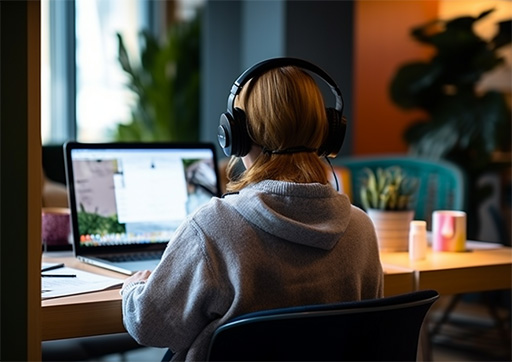Four Ways To Improve Concentration In Meditation

#1 – Peppermint
Peppermints are a delicious after-meal delight that helps freshen breath and soothe a sweet tooth without the unneeded calories from the desert. They remind us of holiday time, and their white and red appearance brings a smile to our face as we associate it with its sweet and refreshing flavor. Peppermints have added benefits beyond their enjoyable taste. Their stench and flavor can help aid with concentration in meditation.
Peppermint oil is not for everyone. While studies have found that peppermint oil can aid in nausea and migraine relief, some become sick at the smell of it. Peppermint allergies are not common but do exist.
#2 – Getting Adequate Sleep
Those who lack sleep may experience a wired feeling where their thoughts are too fast or too slow. Others find it challenging to keep their head off the table at work or school because of the sleep deprivation they have been experiencing. The amount of sleep you should be getting depends mainly on your age group. Teenagers are the most likely group of people to suffer from sleep deprivation as high schools often hold their first class before eight in the morning for most school districts around the nation. The typical teenager needs eight to ten hours of sleep. Because of this, energy drinks like Monster and Bang have become popular to offset their restless hours.
Those who find themselves in need of a good night’s sleep cannot make it up on the weekends. They need a fixed go-to-bed and wake-up time that they abide by every night. Improving your sleep schedule will require you to organize the other parts of your day into categories to determine the best time to sleep. You can set aside two hours in the evening for grading papers or studying. Every day, the things you do must have their slot, so you are not up all night doing them.
Getting too much sleep can also be an issue. People who sleep in often work from home. It can be challenging to get into the groove of things when you wake up at eight in the morning one day and noon the next. An alarm clock can solve this issue.


#3 – Choosing A Healthy Diet
Healthy diet plans rich in antioxidants and other nutrients can help you power through your day better than the garden-variety American diet. An example of an energy-fueling beverage often overlooked in favor of a more caffeinated one is green tea. Green tea may be a better option over coffee as it is calming and stimulating at the same time due to its high levels of l-theanine and caffeine. Matcha green tea can be an excellent choice as it has the highest antioxidants available in tea.
Eggs are a high-protein-filled food that aids in energy, thus improving concentration in meditation. An amino acid called leucine is present in high amounts in eggs. This protein building-block helps boost energy levels while also aiding in muscle recovery for those who work out. Eating just one egg contains 18% of your daily riboflavin intake. B-Vitamins, like riboflavin, helps the body convert food into fuel.
#4 – Music
Music helps boost energy, especially energetic songs. We often listen to music as we work or study to decrease the activity’s boredom. It increases stamina during a workout and gives us a boost in endorphins when we sing along. A Stanford study in 2007 found music to be something that calls our brains to pay attention. Music actively engages the areas of the brain that call us to pay attention and remember. Some may find music to be too much of a distraction. In such a case, try listening to music that does not contain lyrics.

Concentration in Meditation
Meditation techniques are often practiced by those who struggle with anxiety as it is an excellent way to ease the mind without the added complications that prescription drugs provide. Relaxing the mind into a relaxed state helps you practice warding off unwanted thoughts that might distract you while doing your work. It can be done in the office with a cosset tape or in a classroom before a final exam.
A study published on NCBI by Gabriel Jose Correa Mograbi examined the link between meditation and attention, control, and emotion. It found meditation and self-control strictly related as we gain control over our minds to ward off unwanted thoughts to clear them. Guided concentration in meditation can lead you to focus on your work or school life.
While there are many ways to help increase your attention span and your energy level, nothing will get you off the couch without you wanting to complete the task at hand. Consider incorporating these ideas into your lifestyle. You will notice a higher rate of completed work and better performance.
